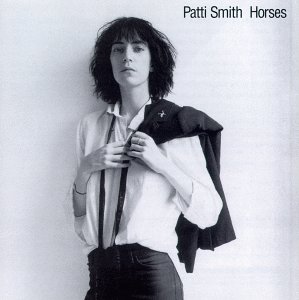
- Format: FLAC

It isn't hard to make the case for Patti Smith as a punk rock progenitor based on her debut album, which anticipated the new wave by a year or so: the simple, crudely played rock & roll, featuring Lenny Kaye's rudimentary guitar work, the anarchic spirit of Smith's vocals and the emotional and imaginative nature of her lyrics, all prefigure the coming movement as it evolved on both sides of the Atlantic. Smith is a rock critic's dream, a poet as steeped in '60s garage rock as she is in French Symbolism; "Land" carries on from the Doors' "The End," marking her as a successor to Jim Morrison, while the borrowed choruses of "Gloria" and "Land of 1,000 Dances" are more in tune with the era of sampling than they were in the '70s. Producer John Cale respected Smith's primitivism in a way that later producers did not, and the loose, improvisatory song structures worked with her free verse to create something like a new spoken word/musical art form: Horses was a hybrid, the sound of a post-Beat poet, as she put it, "dancing around to the simple rock & roll song."